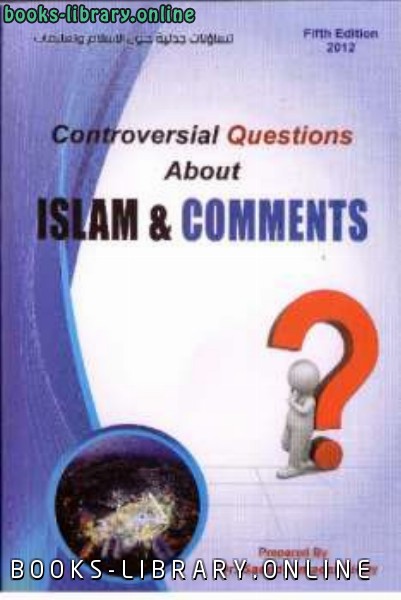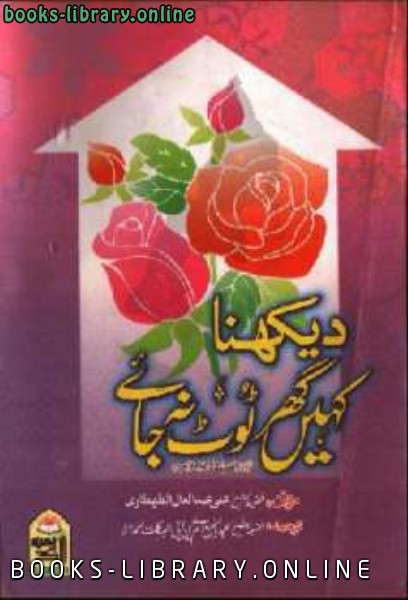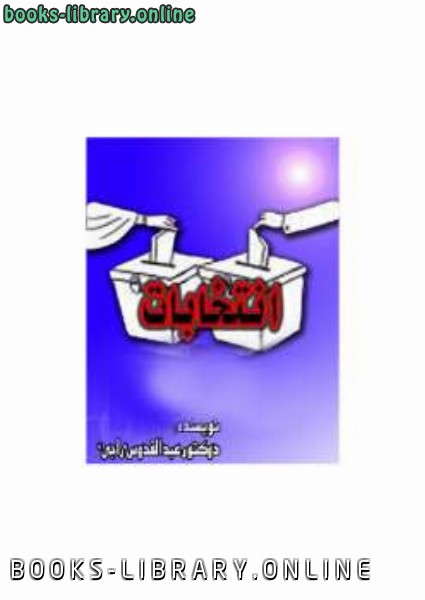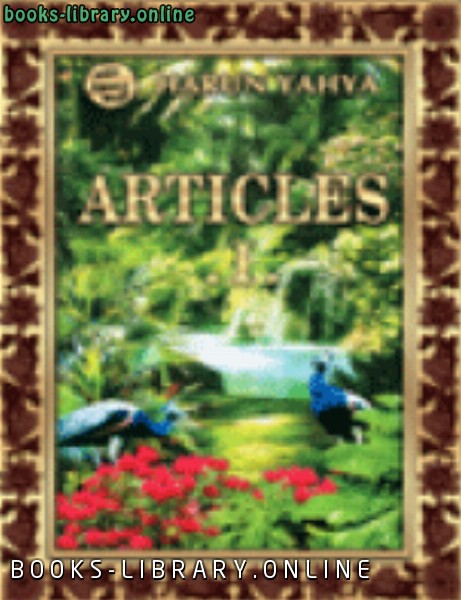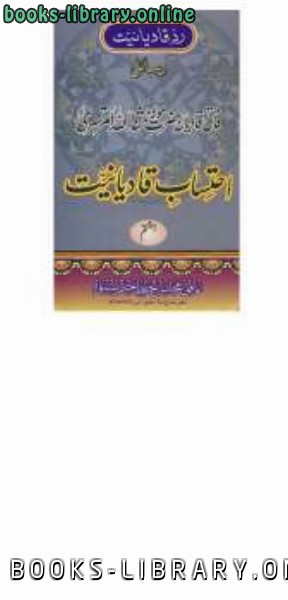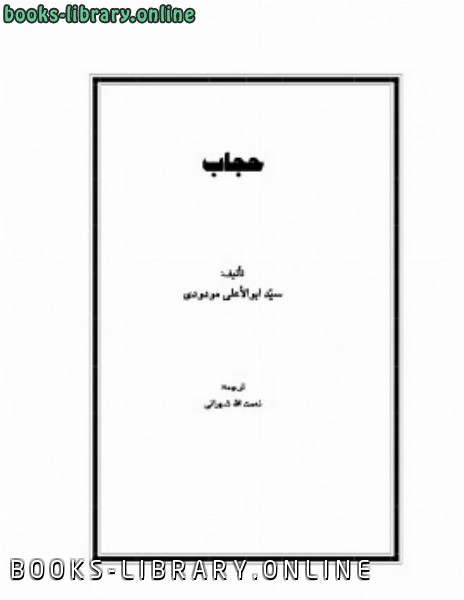كتاب Controversial Questions about Islam and Comments
All my thanks are due to Allah who enabled me to write this book, and may peace be upon all messengers of Allah. Among the common mistakes is that some people criticize the Divine law depending, only on the limited mental abilities of the humans in sensing things and comprehending them. Our means of hearing, seeing, smelling are so limited. Even with the use of technological extensions we are still short of recognizing countless things that we live with or among. Therefore, it is necessary to make use of two kinds of methods of authentication: textual and logical. The textual method depends primarily on the authenticity of the chains of narrators. In the case of the Holy Quraan and the Prophetic Traditions, the chain begins from the Prophet (pbuh) down to the person who put it in writing. Meanwhile, the logical methodology depends primarily on our human senses and reasoning faculty. When the information concerned is related to the Divine Will and commands, there is no alternative to the textual methodology. This is so because our human comprehension and reasoning fall short of passing judgment on Divine knowledge. For example, by reviewing the slow and tedious development of human discovery of the laws of nature that have existed since the creation of the universe, we will realize how limited our knowledge is. There are still endless things to be discovered by our limited tools and resources. Still among the other common mistakes is criticizing a part of a system neglecting the other parts. This mistake becomes more serious when it concerns the Divine law. An example of this is when some researchers discuss parts of an Islamic law stripped of their natural context, disregarding the other complementary parts. Those people are similar to a person who wonders Controversial Questions about Islam and Comments This Book presents a broad perspective of Islam: its sources, beliefs, rituals, laws and moral values, it also tries to answers the most frequently asked questions about Islamic teachings.سعيد اسماعيل سنى - ❰ له مجموعة من الإنجازات والمؤلفات أبرزها ❞ The difference between the shee rsquo ah and the muslims ❝ ❞ Controversial Questions about Islam and Comments ❝ ❱
من كتب إسلامية بلغات أخرى - مكتبة كتب إسلامية.

قراءة كتاب Controversial Questions about Islam and Comments أونلاين
معلومات عن كتاب Controversial Questions about Islam and Comments:
All my thanks are due to Allah who enabled me to write this
book, and may peace be upon all messengers of Allah. Among the
common mistakes is that some people criticize the
Divine law depending, only on the limited mental abilities of
the humans in sensing things and comprehending them. Our means
of hearing, seeing, smelling are so limited. Even with the use of
technological extensions we are still short of recognizing countless
things that we live with or among.
Therefore, it is necessary to make use of two kinds of methods
of authentication: textual and logical. The textual method depends
primarily on the authenticity of the chains of narrators. In the case
of the Holy Quraan and the Prophetic Traditions, the chain begins
from the Prophet (pbuh) down to the person who put it in writing.
Meanwhile, the logical methodology depends primarily on our
human senses and reasoning faculty.
When the information concerned is related to the Divine Will and
commands, there is no alternative to the textual methodology. This
is so because our human comprehension and reasoning fall short of
passing judgment on Divine knowledge. For example, by reviewing
the slow and tedious development of human discovery of the laws
of nature that have existed since the creation of the universe, we will
realize how limited our knowledge is. There are still endless things
to be discovered by our limited tools and resources.
Still among the other common mistakes is criticizing a part of
a system neglecting the other parts. This mistake becomes more
serious when it concerns the Divine law.
An example of this is when some researchers discuss parts of an
Islamic law stripped of their natural context, disregarding the other
complementary parts. Those people are similar to a person who wonders
Controversial Questions about Islam and Comments
This Book presents a broad perspective of Islam: its sources, beliefs, rituals, laws and moral values, it also tries to answers the most frequently asked questions about Islamic teachings.
للكاتب/المؤلف : سعيد اسماعيل سنى .
دار النشر : .
سنة النشر : 2012م / 1433هـ .
عدد مرات التحميل : 3791 مرّة / مرات.
تم اضافته في : الأربعاء , 27 مارس 2019م.
حجم الكتاب عند التحميل : 1 ميجا بايت .
تعليقات ومناقشات حول الكتاب:
INTRODUCTION TO THE FIFTH EDITION................................................ 7
ISLAM: BELIEFS, RITUALS AND LAWS................................................... 10
What are the Basic Beliefs and Rituals? ......................................................... 10
How Can We Apply 14-Century Old Laws Today?............................................ 12
What is the Ruling for a Muslim Raising such Question?.................................. 12
How does Islamic Law Relate to Reality? ....................................................... 15
What is Behind the Permanence of Islamic Law? .............................................. 17
FATE, LAW OF NATURE, INTERCULTURAL RELATIONS ...................... 22
Why is Man responsible for his deeds?............................................................. 22
Are we responsible while our deeds are creations of Allah? ............................. 24
Can we be responsible and need the Permission of Allah? ................................. 26
Can We be Responsible if we Cannot Miss the Recorded? ................................. 27
How is accountability, reward and punishment?................................................ 29
Does Jihad mean fighting who rejects Islam?.................................................... 32
Does al-walaa mean love and support?.............................................................. 33
Does al-baraa mean hatred and hostility? ........................................................ 35
THE MISSIONARY NATURE OF ISLAM.................................................... 38
Why Muslims Propagate Islam?....................................................................... 38
What about Non-Muslim Missionary Activities? are:........................................ 39
What about Practicing other Religions in Saudi Arabia?.................................. 41
HUMAN RIGHTS IN ISLAM....................................................................... 45
What is the Islamic Concept of Justice and Equality? ...................................... 45
What is the Islamic Concept of Freedom? ........................................................ 47
What about Freedom of Speech?...................................................................... 48
What about Slavery in Islam? ......................................................................... 49
What is the Islamic Political System? ............................................................. 51
What about Citizenship and Religious Multiplicity? ......................................... 54
What about Human Relations?........................................................................ 55
What about Dialogue across Religions? .......................................................... 57
Does Islam Support Human Rights Organizations? ........................................... 58
STATUS OF WOMEN IN ISLAM................................................................. 61
What is the Status of Women Compared to Men?.............................................. 62
What is the Women’s Role in the Political System? ......................................... 65
Why is Women’s Testimony Half of Men’s Sometimes? ..................................... 66
Why does a Female Inherit a Half in Some Cases? ............................................ 67
What about Marriage and Divorce? ................................................................ 69
Why ...Can a Muslim Woman Marry a non-Muslim? ........................................ 70
Why Can a Man Marry up to Four Wives?....................................................... 71
Does Islam Discourage Women Driving?.......................................................... 73
Why is hijaab for women? ................................................................................ 74
ISLAM FORBIDS OPPRESSIVE TERRORISM AND VIOLENCE.............. 75
What is the Difference between Oppressive and Defensive Terrorism?............... 78
How Islam Deals with Offensive Terrorism?.................................................... 79
Does Quranic Schools Instill Hatred and Fanaticism?...................................... 80
APPLICATION OF ISLAMIC LAW AND EXTREMISM............................. 83
Do Some Islamic Countries Enforce Extreme Punishments? .............................. 84
...Why Does Islam Impose Capital Punishment?................................................ 85
What is the Punishment of Stealing a Valuable Thing?..................................... 87
Why Islam Imposes Punishment for Fornication? .............................................. 88
Where is the Truth about the Death Sentence for Adulterers? ........................ 89
Does a Person Deserve the Death Sentence for Apostasy? ................................ 91
CONCLUSION ............................................................................................. 93
ARABIC REFERENCES .......................
All my thanks are due to Allah who enabled me to write this
book, and may peace be upon all messengers of Allah. Among the
common mistakes is that some people criticize the
Divine law depending, only on the limited mental abilities of
the humans in sensing things and comprehending them. Our means
of hearing, seeing, smelling are so limited. Even with the use of
technological extensions we are still short of recognizing countless
things that we live with or among.
Therefore, it is necessary to make use of two kinds of methods
of authentication: textual and logical. The textual method depends
primarily on the authenticity of the chains of narrators. In the case
of the Holy Quraan and the Prophetic Traditions, the chain begins
from the Prophet (pbuh) down to the person who put it in writing.
Meanwhile, the logical methodology depends primarily on our
human senses and reasoning faculty.
When the information concerned is related to the Divine Will and
commands, there is no alternative to the textual methodology. This
is so because our human comprehension and reasoning fall short of
passing judgment on Divine knowledge. For example, by reviewing
the slow and tedious development of human discovery of the laws
of nature that have existed since the creation of the universe, we will
realize how limited our knowledge is. There are still endless things
to be discovered by our limited tools and resources.
Still among the other common mistakes is criticizing a part of
a system neglecting the other parts. This mistake becomes more
serious when it concerns the Divine law.
An example of this is when some researchers discuss parts of an
Islamic law stripped of their natural context, disregarding the other
complementary parts. Those people are similar to a person who wonders
Controversial Questions about Islam and Comments
about the benefit of the night and darkness that arouse fear and horror and
cost us much to illuminate. This person ignores or forgets that without
night and darkness we cannot recognize the daytime or daylight, nor can
we appreciate it.
Sometimes, we dare to quote verses from scriptures after stripping them
of their proper contexts. Thus, we come up with meanings that partially
or totally contradict the intended meanings of the verse. The danger of
this practice becomes especially serious when the texts concerned are
authenticated holy texts.
For example, some people discuss aspects of Islamic law from a secular
perspective only; i.e., from a perspective that denies the existence of life
in the Hereafter, or from a perspective that does not see any relationship
between this temporary life and Eternal Life . In fact, this life is only a
field in which to plant the fruits for Eternal Life. We occasionally harvest
some of the crops in this life, but the real crop to be harvested is in Eternal
Life .
Therefore, the wise person, before criticizing or evaluating a unit of a
law or a system, should first acquaint himself with the function of this unit
in the system as a whole and how it fits in with the other units.
Furthermore, Some people, raise questions about aspects of Islamic
law, ignoring two basic facts: 1) Allah Who created the accountable
beings (Jinn and Humans) knows best what is good for them. 2) The Jinn
and Human’s means of knowledge are limited. Therefore, they are not
qualified to question the Creator’s infinite knowledge and commands.
It is true that, to some extent, we can figure out some of the wisdom
behind the Divine laws, but none could claim to know the logic behind
every piece of the law exclusively.
Also among the common mistakes is to pass judgments on the
teachings of Islam based on the practice of the Muslims, which ranges
from the extreme to the completely deviated.
The main purpose of this booklet is the following:
1. To answer the most common questions raised about Islam: Its
beliefs, rituals, laws, and moral values; its missionary nature; its stance on
human rights; and the status of women; violence and terrorism; Islamic
Controversial Questions about Islam and Comments
law and extremism.To introduce the major issues and demonstrate that
Divine teachings are not mysteries, but are in perfect harmony with
the pure disposition of man and naturally guide people’s moral values.
However, we have to look at these laws with an open mind.
In this book the author has followed these rules:
1. To choose the most often asked questions about Islam by Muslims
and non-Muslims.
2. To utilize daily life examples to explain briefly the issues under
discussion.
3. To confine the discussion to the predominant opinion when there is a
difference of opinions on minor issues.
4. When there is a conflict of opinion on major issues both opinions are
mentioned along with their supporting evidences.
5. To exclude information not closely related to the Islamic teachings
themselves.
This work is a product of my personal experience, readings about
dialogues related to the religious teachings in the aforementioned topic
areas and extensive studies.
Finally, I would like to extend my sincere appreciation to all who
helped in producing this work, whether by their writings, comments,
editing or helping to publish it, and appreciate very much any specific
comment that improves the book.
This Book presents a broad perspective of Islam: its sources, beliefs, rituals, laws and moral values, it also tries to answers the most frequently asked questions about Islamic teachings.
 مهلاً !
مهلاً !قبل تحميل الكتاب .. يجب ان يتوفر لديكم برنامج تشغيل وقراءة ملفات pdf
يمكن تحميلة من هنا 'تحميل البرنامج'

نوع الكتاب : pdf.
اذا اعجبك الكتاب فضلاً اضغط على أعجبني و يمكنك تحميله من هنا:


كتب اخرى في كتب إسلامية بلغات أخرى
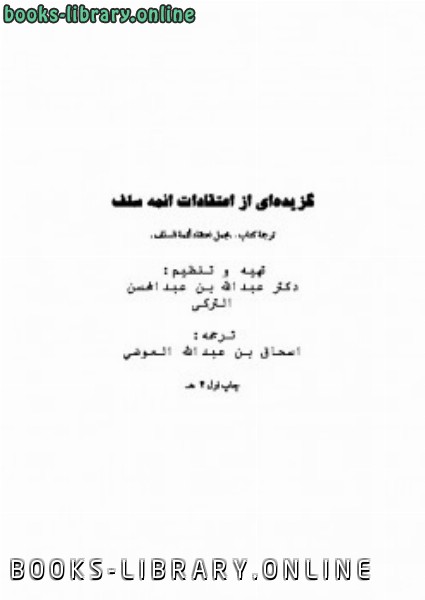
گزيده zwnj ای از اعتقادات ائمه سلف PDF
قراءة و تحميل كتاب گزيده zwnj ای از اعتقادات ائمه سلف PDF مجانا
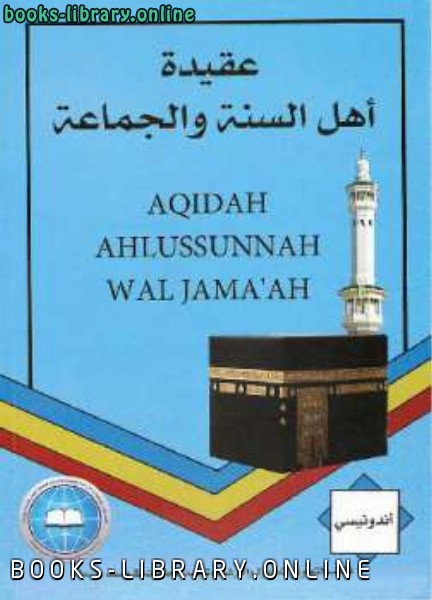
Aqidah Ahlussunnah Wal jama rsquo ah PDF
قراءة و تحميل كتاب Aqidah Ahlussunnah Wal jama rsquo ah PDF مجانا
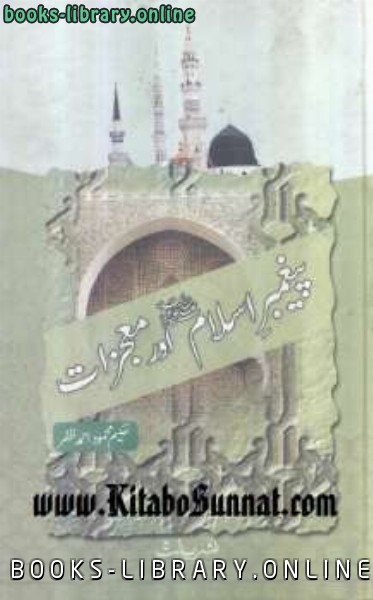
پیغمبر اسلام صلی اللہ علیہ وسلم اور معجزات PDF
قراءة و تحميل كتاب پیغمبر اسلام صلی اللہ علیہ وسلم اور معجزات PDF مجانا
